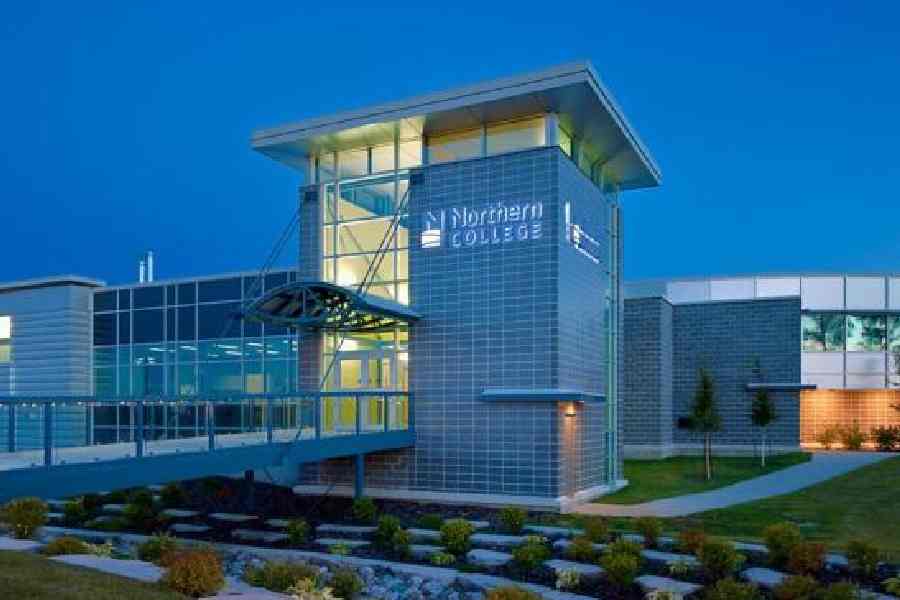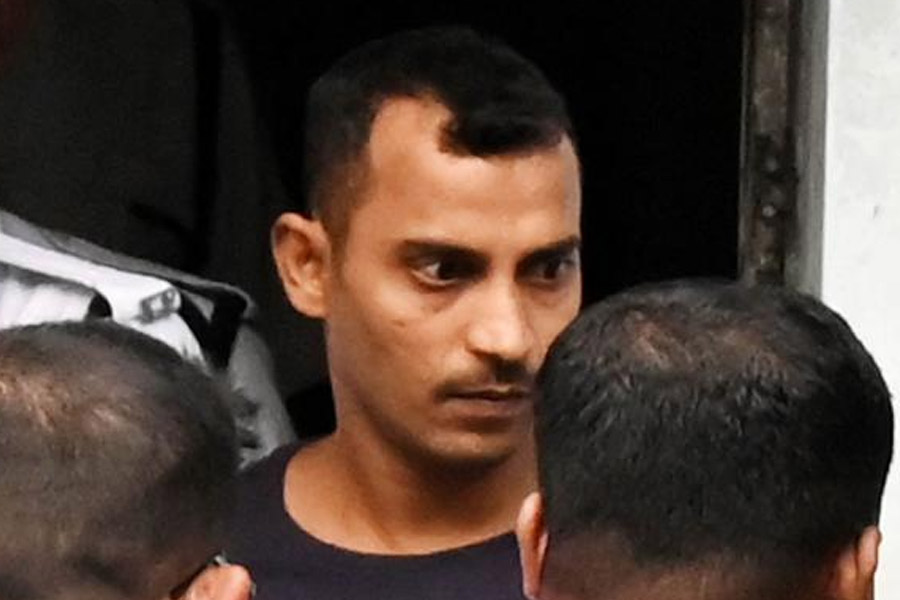On a college campus in northern Canada, eight hours by car from Toronto, most of the students who fill the classrooms are from a country half a world away: India.
The young men and women stretching on mats in the gymnasium are more likely to be from Punjab or Gujarat, two Indian states, rather than rural Ontario. Hindi and Punjabi drowned out English in the cafeteria’s lunchtime cacophony.
In the surrounding city of Timmins, the servers at two new Indian restaurants do not ask customers how spicy they want their dishes. A shuttered bar named Gibby’s has been reopened as a Sikh temple, or gurdwara, where students from the school, Northern College, gathered on a recent evening. “We feel like we are in India,” said Mehardeep Singh, 20, a general arts and science major, who led a prayer. “In every class, there are only three or four local people. The rest are from India.”
Northern College traditionally drew its students from the province of Ontario’s vast, sparsely populated hinterland, a region dominated by miners and loggers. Today, a whopping 82 per cent of the public college’s students come from abroad — nearly all from India.
How a Canadian college — in a remote town most Canadians have never visited, where winters can feel subarctic — became a magnet for young Indians is the story of the many forces buffeting the country.
Public colleges and universities, hit hard by budget cuts, have grown dependent on the higher tuition international students must pay. For students from abroad, the institutions can be a conduit to permanent Canadian residence, and for Canada, the students help reduce labor shortages and increase the country’s flagging productivity.
More than 60 per cent of foreign students in Ontario’s public colleges are from India — a dependence that the province’s auditor general identified as a risk to the schools’ long-term survival.
As a result, Prime Minister Justin Trudeau’s accusations in September that the Indian government was involved in the killing of a Canadian Sikh separatist near Vancouver, British Columbia, sent tremors through Ontario’s educational institutions.
The episode has strained relations between Canada and India, which categorically denied any involvement and forced out 41 Canadian diplomats. At Northern College — where Indians make up 96 per cent of all foreign students — officials said they would intensify efforts to recruit more students from Africa and Indonesia to reduce their dependence on India.
“We don’t want all our eggs in one basket,” said Audrey Penner, the college’s president, adding that if the tensions between India and Canada persisted, “our market might dry up regardless of any efforts that we take.”
Founded in 1967, Northern, like other public colleges in Ontario, was established to develop a workforce suitable for its region. That meant training young people to work in mining, technology and health care.
Before Northern College looked overseas, its student population peaked a quarter-century ago at about 2,000, Penner said, but declining regional birthrates and migration to bigger cities pushed enrollment down to about 1,300 a decade ago. At the same time, Northern and other colleges began facing cuts in government funding and tuition freezes.
Northern — and other colleges and universities in Canada — began aggressively looking overseas. The Canadian government said it was on track to host 900,000 foreign students this year, three times as many as a decade ago.
Indians make up the largest group by far, accounting for 40 per cent of all international students across the country, according to the Canada Bureau for International Education. China ranks second, at 12 per cent.
At Northern College, there were 40 international students in 2014; now it has 6,140. Enrollment got a further boost after Northern, like other remote public colleges, opened a campus by partnering with a private college in a Toronto suburb in 2015. Today, about one-third of Northern’s foreign students are in Timmins and at three other smaller northern campuses, while the rest are on the Toronto campus.
Northern appeared to tap into an increasingly rich segment of the Indian population, with many students saying they were the first in their families to study overseas.
Arbaz Khan, 25, said he was not only the first member of his family but also the first Muslim in his village in Gujarat to study in Canada. Because his family owned farmland and his father was a politician, he was able to secure a bank loan of about $30,000 Canadian (about $22,500) for part of his tuition and other costs to study at Northern.
“I want to live my life independently,” said Khan, who is majoring in business administration. “I want to make my own empire with own hands and my own legs. That’s why I chose to go abroad.”
Annual tuition varies by major, but for foreign students, it is generally around CA$16,000, about foreign-and-a-half times what Canadian students pay. Some Indian students were reluctant at first to study at such a remote location. Maninderjit Kaur said she would probably not have gone to Timmins if the education consultant in India — who arranged her enrollment at Northern — had told her the school’s exact location.
She recalled landing at the airport in Toronto in 2018, then hopping into an Uber, believing that Northern College was nearby. The eight-hour ride cost CA$800.
“I was sitting in the car, and Timmins never came,” Kaur, 25, said, recalling the drive through endless forests with no cellphone service. “I’m scared they’re taking me somewhere else.”
Now Kaur works in marketing at the college and owns a petrol station in town with her fiance, Karanveer Singh, 28, who also came from India to study at Northern.
But despite many foreign students’ initial reluctance to study at a place as remote as Northern, Penner, the college’s president, believed she held an ace: Graduates of Northern and other public colleges may apply for a post-graduation work permit that could lead to permanent residence and citizenship.
New York Times News Service











